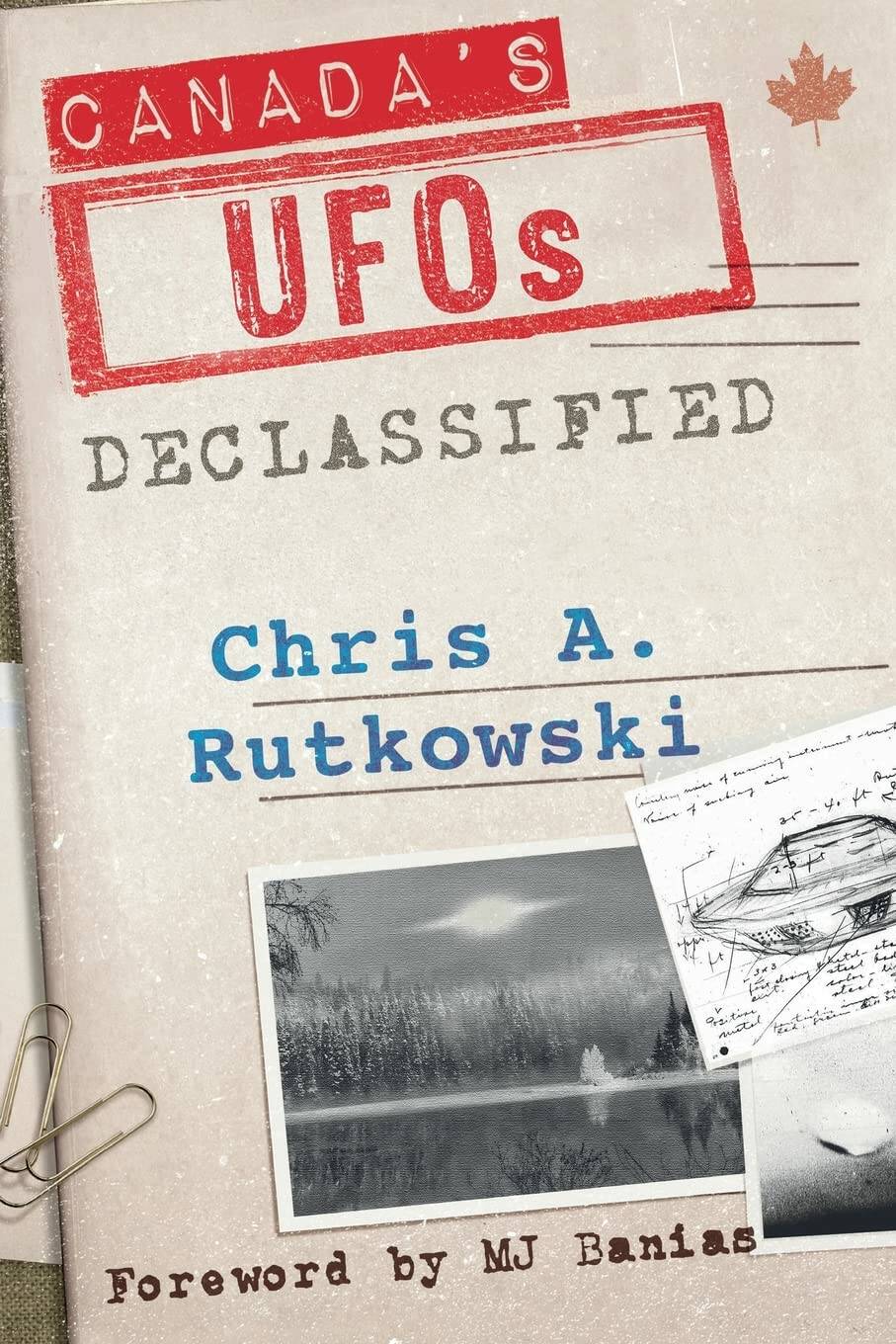Rutkowski scours scads of Canadian UFO docs – Winnipeg Free Press
If most science-fiction movies and television shows are any indication, aliens from other worlds generally choose to make themselves known to humanity by landing in Washington, D.C. — or, in the case of those on Doctor Who, in London, England.
If they were paying attention to human affairs and wanting to make contact with the best-informed humans regarding their activities, they’d be better off landing in Winnipeg.
That’s because our city happens to be home to Chris Rutkowksi and his Ufology Research which, since 1989, has been collecting and analyzing Canadians’ UFO sightings and producing an annual Canadian UFO Survey. In recognition of this national profile, in 2000 he also began receiving official data from various governmental agencies as well.

Canada’s UFOs Declassified
Rutkowski’s nearly lifelong fascination with UFOs has resulted in nine previous books on the subject, including 2008’s The Canadian UFO Report: The Best Cases Revealed and 2010’s The Big Book of UFOs. Most recently, he gave book-length treatment to one of Canada’s most famous sightings with 2019’s When They Appeared: Falcon Lake 1967 — The Inside Story of a Close Encounter.
Now, with his entertaining and compelling new book, Canada’s UFOs: Declassified, he turns his attention to official government records of UFO reports. In addition to the intriguing Falcon Lake incident, Rutkowski recounts a surprising number of Manitoba cases, including the legendary appearances of the mysterious “Charlie Redstar” light that regularly drew crowds near Carman in 1975.
These cases aren’t just anecdotes: they are drawn from publicly available digital files from Libraries and Archives Canada, in reports submitted to multiple federal agencies (including Transport Canada, the Department of National Defence and the RCMP) between 1947 and 1981.
As Rutkowski explains, the challenge for the UFO researcher is that, because of the historic involvement of these different agencies, there is no one single “UFO archive.”
Given the governmental origin of these reports, many of these encounters were reported by highly trained observers, including pilots, military officers, radar operators and police.
The book’s authenticity is further enhanced by the inclusion of numerous digital scans of the original files recounting the various sightings and the official responses to them.
Organized thematically rather than chronologically, the book examines the records both geographically (Canada’s North, the Atlantic, etc.) and in terms of whether UFOs were reported in the air or on the ground.
Rutkowski also considers what the archives say about different types of physical evidence — in particular the strange tale of an Ottawa-based group that claimed to have in its possession a 1,360-kilogram piece of extraterrestrial metal — and alleged encounters with aliens.
Readers familiar with Rutkowski’s work will know him to be sober and even-handed in his approach to the available evidence. He is clearly agnostic as to the origin and nature of the phenomenon of UFOs (or, as more recent terminology has it, Unidentified Aerial Phenomena, or UAPs), never openly declaring them to be extraterrestrial in origin.
He is also forthright in identifying natural explanations for some of the sightings, such as the frequently misinterpreted presence of the planet Venus or meteors on the nights in question.
What particularly interests Rutkowski is Ottawa’s response to UFOs: while the U.S. government launched several investigations into the phenomenon over the decades — notably the U.S. Air Force’s Project Blue Book, which actually investigated hundreds of UFO reports in this country — Canada’s approach was to quietly shift responsibility from the Department of Defence to the National Research Council, with the actual investigations then carried out by the RCMP.
Given this lack of federal attention to UFOs, Rutkowski has done Canadians a real service in drawing attention to this astonishing and revealing archive. The truth may be in there.
Michael Dudley is a librarian at the University of Winnipeg.
If you value coverage of Manitoba’s arts scene, help us do more.
Your contribution of $10, $25 or more will allow the Free Press to deepen our reporting on theatre, dance, music and galleries while also ensuring the broadest possible audience can access our arts journalism. BECOME AN ARTS JOURNALISM SUPPORTER Click here to learn more about the project.
This article has been archived for your research. The original version from Winnipeg Free Press can be found here.


